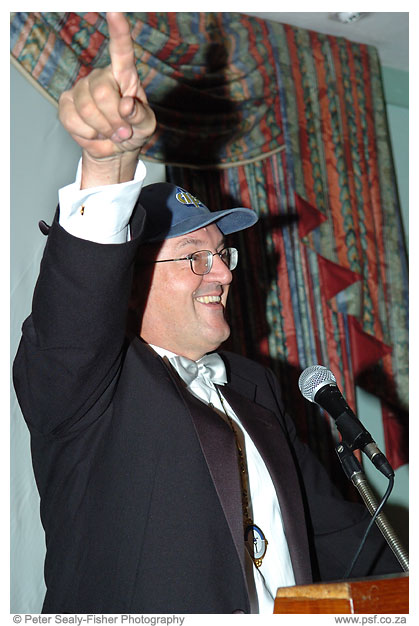How do you describe your job when you meet people at a party?
It is difficult. Usually the one that works is “I stop things from rusting”
What is ‘cutting-edge’ about your work?
Most of my work is associated with the corrosion protection of steel pipelines. This involves organic chemistry related to protective coatings, electrical circuit theory and electrochemistry. As new materials are developed, situations arise for which there is no precedent. We have to then develop new procedures, standards and quality requirements. Often when I approach my international colleagues with a question, I get the response “when you find out or solve the problem, please let us know”
What are the biggest implications your work will/could have in the future?
Several international studies have indicated that the cost of corrosion in terms of deterioration and replacement of assets is equivalent to about 4% of the GDP of developed countries. Correct and timeous application of existing corrosion protection technology can save up to 40% of these costs. In South Africa, this figure equates to the total contribution of the mining industry. Corrosion is one of the major causes of pipeline leaks worldwide. Correctly designed and maintained corrosion protection systems have far-reaching implications in preservation of resources and the prevention of environmental disasters
Describe some of the highlights of your average day.
You never know what the next telephone call or email is going to be. Receiving repeat business from a satisfied client, finding a solution to a technical problem, demonstrating the success of a new application or commissioning a project which works as designed are what makes the work exciting and satisfying. I have never been bored in my work
Describe briefly how your career has progressed to date.
I spent two years doing post graduate industrial research after my degree. This convinced me that an academic / research career was not for me. I then started as a materials engineer with a small consulting organization specializing in corrosion control. This was somewhat ironic, as their main line of business was in protective coatings, and organic chemistry had been one of my least favorite subjects at university. They wanted to expand their activities into other materials. I worked as a relief inspector on many construction projects, gaining hands on practical experience. Because of my natural aptitude for things electrical, (having been brought up on electrons, so to speak) I became involved in electrochemical corrosion protection and started a new department within the company. The company was bought out by a larger international organization, and I was promoted (by default more than anything else) to a management position. This was never a happy marriage and I did not enjoy the management role, so I left the company (after 13 years) to work on contract for one of the large project engineering houses in UK in their materials department. I then returned to South Africa for family reasons and started my own consulting company, specializing in corrosion protection of pipelines and metallurgical failure analysis. That was 17 years ago. It has been a roller coaster ride but we are still going strong. I became a member of the Corrosion Institute of Southern Africa when I started work, and have served on the Institute Council for 23 years in various capacities, including President in 2005-2007
How is your job cross-disciplinary?
Corrosion protection requires knowledge of chemistry (especially organic and electrochemistry), physics, materials, electrical engineering, chemical engineering mathematics, statistics and geology. Proficiency in interpersonal relationships helps, particularly when you get into failure analysis work. Many people may specialize in only one aspect of corrosion protection, such as water treatment. As an independent service provider, I have been fortunate enough to gain experience and work in a wide variety of fields. To give you an example, pipeline corrosion protection involves protective coatings (organic chemistry), cathodic protection (electrochemistry) and stray current interference (electrical engineering). Combine this with the geology of the route the pipeline is being laid through – and you have a multi-disciplinary application!.
How well is your job compensated? What is the starting salary for your field, and how much can this be expected to rise?
Compensation is much the same as any other engineering discipline. I believe that engineering as a career is underpaid worldwide. Being self-employed. I cannot comment on salary levels. We live comfortably, but my wife believes I am not paid what I am worth
How do you see your field developing over the next 5-10 years?
Through the unstinting efforts of the various professional institutions around the world and the publicity of a few spectacular failures attributed to corrosion, there is a growing awareness of the need for adequate corrosion control in design and maintenance. I therefore believe that this offers an exciting, challenging and rewarding career opportunity – money isn’t everything
What’s the most unexpected thing about your job?
People. I never realized the importance of interpersonal relationships in technical projects, or the complexity of managing staff. I am an unashamed technocrat. One of the best things that has happened to me is finding a business partner with common ethics and beliefs whom I can trust implicitly who handles the bulk of the administrative load in our small business
What’s the biggest achievement of your career so far?
Development of an intrinsically safe cathodic protection system for the corrosion protection of mounded LPG bullets. This is believed to be the first of its kind in the world.
